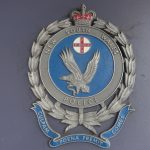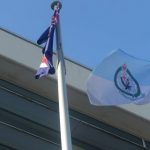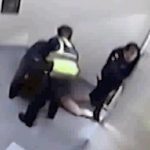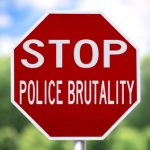NSW Police Face Brutality Hearing over Brutal Assault of Naked Teen
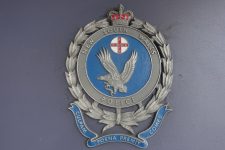
The Law Enforcement Conduct Commission (LECC) has called for a second public hearing into the brutal arrest of a naked sixteen year old boy in the Northern New South Wales town of Byron Bay.
The Commission is investigating the use of excessive force during the arrest, which occurred in January earlier this year. The incident was caught on camera by members of the public, and the footage went viral on social media.
The incident sent shock waves through the small residential community in the popular holiday town of Byron Bay, which prides itself on having a ‘peace love and happiness culture,’ with the mayor expressing disbelief that police would treat anybody so appallingly, let alone a naked teen clearly in need of help.
The story so far
Police responded to reports of a naked young man calling out for help and for water on the streets outside a youth hostel around 2am. Four officers arrived in two cars and observed the teenager lying on the roadway.
Police claimed the naked teen became aggressive towards them when they arrived, which necessitated the use of pepper spray. They further stated that they were forced to use a Taser when the youth attempted to assault officers.
However, eye-witness statements and CCTV footage tell a different story. Witnesses stated that “the first thing the officers did” when they arrived at the scene was to pepper spray the teen, which “made him more agitated”. The officers then Tasered him. Witnesses further stated that the boy did not threaten anyone at any time.
The CCTV footage depicts four officers pinning the teenager to the ground, calling him a “fucking loser” and a “cunt”, and at least of one of those officers forcefully striking him with a baton nineteen times as the teen cries out for help.
Evidently, the officers were unaware they were being filmed during the incident.
Further information emerges
The LECC has already conducted a hearing into the incident, which heard that the teen suffers from Aspergers Syndrome and that his parents were out for dinner when their son went for a walk, but stayed in touch with him via phone
The parents stayed in touch by phone but became concerned when their son did not respond to their requests to come home. They received a phone call from the local hospital at about 3am, where the teen was taken for treatment of his injuries.
The LECC says it is taking the case very seriously
The teen testified that he does not remember much about the attack, but recalls meeting up with local kids who gave him a glass of wine before he became disoriented.
Immediately after the incident, a NSW police spokesperson defended the conduct of the officers, saying police need to safeguard themselves against intoxicated people who are affected by drugs and alcohol and are acting erratically.
A couple of months later, Byron Bay police announced they would be investing in more body cams for officers “to give officers, the community, and Magistrates the opportunity to see the full picture in any interactions involving police and members of the public”.
However, the NSW body cam scheme has been criticised on the basis that police can turn the cameras on and off at their own discretion, and that Australian data suggests that police are rarely turning them on.
National concerns over police conduct
Byron Bay police are certainly not alone in making media headlines for engaging in brutality.
Gold Coast Police have regularly been criticised over assaulting members of the public, and in Victoria, the problem has become so prolific that the legal aid commission is advising anyone who has been mistreated to report it via social media, rather than just through ‘official’ complaint channels as they rarely result in disciplinary action.
There are widespread concerns that police forces across the nation have become a ‘law unto themselves’ with poor recording of complaints, and reports that even when serious incidents escalate to investigative bodies such as the LECC, they are unsatisfactorily dealt with because the bodies have little resources and no power to discipline officers who engage in criminal offences, or to enforce recommendations that arise from investigations.
The second day of the present hearing intends to hear “submissions from legal representatives regarding the findings to be made in the Commission’s report on its investigation.”
Chief Commissioner Michael Adams QC expects the further hearing to last one day.




